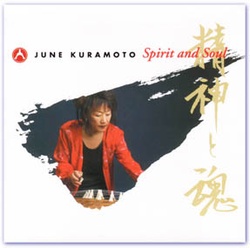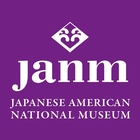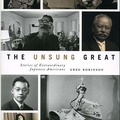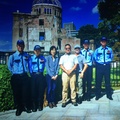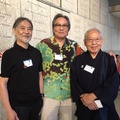“There are times I would doubt what I am doing, or if what I’m doing has any value,” June Kuramoto confides. “When I am recognized by the community, I feel so small compared to others who devote their lives to saving lives—firefighters, nurses, doctors, soldiers and those who commit to community services.”
“Then we get fan mail telling us our music has helped them get through a tough period of their life and actually has saved some lives.”
Throughout her remarkable 25-year career with the iconic jazz group Hiroshima, Kuramoto has affected many people through her work. She made history by breaking cultural barriers in American music. Kuramoto, who plays the koto, a traditional Japanese stringed instrument, integrated the sounds and textures of classical Japanese music with diverse American jazz, pop, and urban sensibilities.
With fifteen Hiroshima albums to her credit (and a sixteenth in progress), Kuramoto has emerged as an artist with a worldwide following. But she sees her role in a humbler and more meaningful perspective because of the struggles that she had to overcome.
“When I first attempted to incorporate koto outside the traditional setting, I was called vulgar and told I had no knowledge to do this,” Kuramoto says. “The Japanese and Japanese Americans were the hardest on me. The African American community immediately embraced me and understood my need and love for culture, history and identity.”
“We all have adversities in life, but it’s how we use them to grow,” Kuramoto explains. “As hard as it may seem, sometimes they can be gifts. I had a very loving mother who had a hard life coming to America by herself with four children. But she still had time to give us many opportunities in life, koto lessons with Sensei Kazue Kudo being one of them. Being poor, I always had to work hard to either help my mother, to educate myself and support myself. All this gave me the opportunity to become independent.”
“When I was a teenager, my friends would make fun of me for playing ‘grandma’s music’,” says Kuramoto. “I thought that if the koto could play in a contemporary setting with contemporary instrumentation, more people might appreciate the beauty of it. I never dreamed I would be the one to make it happen.”
“After all these years, I view not only music but life differently,” says Kuramoto. “I try to do the best I can, live life with passion and enjoy the journey as there is no end in perfection. I must say experience is one of the greatest teachers.”
Much of the richest experience, Kuramoto says, comes through her closeness to her family and to the community.
“Because I play such an ‘ethnic’ instrument, I am deeply committed to culture but also realize my heart is with my people,” says Kuramoto. “I am so blessed and truly lucky to have a life filled with a wonderful daughter, family and friends. My solo CD, Spirit and Soul, was encouraged especially by Dan (Kuramoto) and my Hiroshima band mates. With melodies and sometimes concepts of titles, I had the warmest reception from my writing collaborators, Dan Kuramoto, Kimo Cornwell, Derek Nakamoto and Dave Iwataki to write the songs. And much of the inspiration for my melodies came from my daughter Lani as she would share her readings with me. No one let me fail.”
“I only have one life that I know of and I try hard to create it,” says Kuramoto. “My life is the canvas and in it are colors of family, friends, songs, music, and community. The older I get the world only gets smaller. Whether we like it or not, admit it or not, we are all related.”
“We are all brothers and sisters and we must take care of each other; so many people have taken care of me,” Kuramoto adds. “Through my life and music, I hope I can somehow contribute to make a better world for all.”
* This article was originally published on the Japanese American National Museum Store Online in December 2006.
© 2006 Japanese American National Museum


